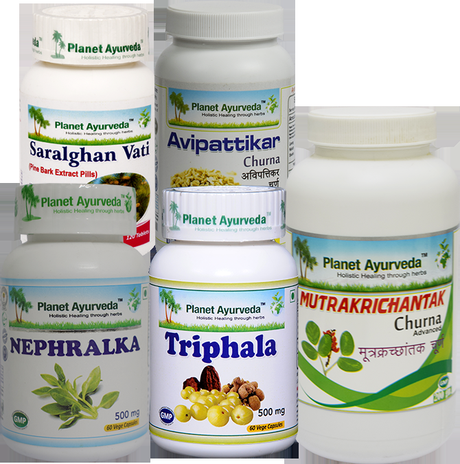Abstract
Encapsulating peritoneal sclerosis mostly occurs in patients who are undergoing peritoneal dialysis. Dialysis fluid is hyperosmotic , hyperglycemic and acidic which causes inflammation in the peritoneum with loss of mesothelium and extensive tissue fibrosis. It can occur at any age. Encapsulating peritoneal sclerosis was first described in 1980. Here in this article we will learn encapsulating peritoneal sclerosis in detail and its ayurvedic management also.
Introduction
It is associated with thickening of the peritoneum that leads to formation of fibrous cocoons . The patients who are undergoing peritoneal dialysis from long are mainly affected by this disease. It was originally termed an abdominal cocoon. It can be caused by autoimmune diseases, sarcoidosis, abdominal surgeries, endometriosis and beta blocker administration. Vomiting, abdominal mass, malnutrition and failure to drive and ultrafiltration problems are the major symptoms of encapsulating peritoneal sclerosis. It is divided into four stages i.e. pre eps stage, inflammatory disease, encapsulation, and chronic stage of ileus. Early diagnosis of this disease is important in order to achieve better prognosis. Let's discuss in detail.

Causes
- Autoimmune diseases
- Sarcoidosis
- Peritoneal and intra abdominal malignancies
- Chronic peritoneal chemotherapy
- Intraperitoneal exposure to particulate matter or disinfectant
- Abdominal surgeries
- Endometriosis
- Intra peritoneal infections
- Beta blocker administration
Risk factor
- Duration on peritoneal dialysis
- Glucose exposure
- Inflammation
- Chemical exposure
- Genetic factors
Classification
Following are the clinical stages of encapsulating peritoneal sclerosis are
Stage 1:- Pre-EPS stage:- In this stage the patient is asymptomatic with mild ascites and no inflammation
Stage 2:- Inflammatory disease:- This is the second stage of encapsulating peritoneal sclerosis in which patients are symptomatic. Nausea and diarrhea are the main symptoms of this stage
Stage 3:- Encapsulation:- In this stage inflammation can occur. Inflammation may be mild or severe.
Stage 4:- Chronic stage of ileus:- Due to thickening of encapsulating fibrous cocoon patients have absolute bowel obstruction. There is little inflammation at this stage.
Symptoms
- Vomiting
- Abdominal pain
- Abdominal mass
- Hemoperitoneum
- Malnutrition and failure to thrive
- Ultrafiltration problems
- Subacute bowel obstruction
Diagnosis
1. Physical Examination: In this examination abdominal mass and abdominal distension is mainly seen.
2. CT-scan: it shows dilated loops of bowel, loculated ascites, peritoneal calcifications and small bowel tethering on examination.
3. Plain radiograph: This test may show the gas-fluid levels similar to those in patients with any other cause of the small-bowel obstruction.
4. Ultrasound: In this test presence of ascites, clumped bowel loops and the appearance of hyperechoic membranes can be seen.
5. MRI: This will demonstrates the same features as CT scan, but MRI gives better image of thickened bowel and peritoneal membrane as compared to CT
scan
Treatment
1. Supportive therapy:- In this aggressive nutritional support is given to the patient.
2. Medical therapy:- Antifibrotic and antiinflammatory drugs given to the patients such as tamoxifen and immunosuppressive.
3. Surgical:- Partial or complete enterolysis and avoid enterotomy.
Prevention
- Preserve residual renal function.
- Minimum use of high glucose
- Prevention of peritoneal deterioration
Ayurvedic overview
Ayurveda is the vedic science which means "knowledge of life". It treats humans as well as animals. Ayurveda tells us that the entire universe is made up of five elements i.e. aakash, vayu, agni , jal and prithvi. These five elements form the three basic humours of the human body i.e. vata, pitta and kapha. According to ayurveda, encapsulating peritoneal sclerosis can be correlated with anna vaha sroto dushti in which vata dosha is mainly aggravated. Due to aggravation of vata it results in abdominal pain, intestinal obstruction and constipation. Vata can be managed by some ayurvedic therapies such as snehana, swedana and shodhana. In snehana ghee, muscle fat, oil and bone marrow are given to the patient for the balancing of doshas. After snehan patients are given fomentation therapy such as nadi sweda, prastara sveda and sankara sveda etc. The herbs which are helpful in the management of encapsulating peritoneal sclerosis are varun, bhumiamla, gokshur, punarnava and triphala.
Herbal remedies for encapsulating peritoneal sclerosis by Planet Ayurveda
Planet Ayurveda is a worldwide company which treats humans as well as animals. This is a GMP certified company. All the medicines made by this company are natural and free from side effects. This company makes medicines under the observation of MD ayurveda doctors. Planet Ayurveda makes medicine in the form of tablets, syrup and churna. All the products are gluten free. In case of encapsulating peritoneal sclerosis following products are offered by Planet ayurveda:-
Product list
- Mutrakrichantak churna
- Nephralka capsule
- Saral ghan vati
- Triphala capsule
- Avipattikar churna


Product Description
1. Mutrakrichantak Churna
Mutrakrichantak churna is made using only pure and wonderful herbs. The main ingredients of this churna are varun ( Crataeva nurvala), bhumi amla ( Phyllanthus niruri), gokshur ( Tribulus terrestris), and kalmegh ( Andrographis paniculata). This churna helps in bringing down creatinine and urea levels in a natural way. It is the best medicine for kidney health and prevents dialysis. This medicine mainly helps to normalize the filtering function of the kidneys. This herbal medicine is also useful to maintain creatinine levels, high uric acid, high urea, kidney stones and urinary tract infections.
Dose:- 1 tsp twice daily with water after meal.
2. Nephralka capsule
Nephralka capsule is an ayurvedic medicine that is primarily used for the management of kidney diseases. The main ingredients of this capsule are bhumi amla ( Phyllanthus niruri), mooli satva ( Raphanus sativus), revandchini ( Rheum emodi), kalmegh ( Andrographis paniculata), and punarnava ( Boerhavia diffusa). These are the best capsules for the management of kidney functions. Kalmegh present in this capsule helps in stimulating appetite and is used in the treatment of anorexia. Punarnava is the best herb to reduce the symptoms of fever, pain, and inflammation. Bhumyamalaki is used for preventing cardiac disorders. Thus this capsule is very helpful in the management of encapsulating peritoneal sclerosis.
Dose:- 1 capsule twice daily with plain water after meals
3. Saral Ghan vati
Planet Ayurveda's saral ghan vati is one of the suitable ayurvedic formulations for removing toxins from the body. The main ingredient present in this tablet is saral ( pinus roxburghii). It is used as a diuretic that flush out toxins from the body. It has antioxidant properties which helps in reducing inflammation. It also acts as a laxative and has antispasmodic actions (relieves from spasms).
Dose:- 2 tablets twice daily with lukewarm water after a meal.
4.Triphala Capsules
Triphala capsule is an ayurvedic medicine which is enriched with the power of three main ingredients such as haritaki ( Terminalia chebula), amalaki ( Emblica officinalis), and bibhitaki ( Terminalia billerica). It helps to improve gut health and remove toxins from the body. It also boosts immunity and has antioxidant and rasayana properties. Haritaki present in this capsule strengthens the digestive system and improves metabolism. Amalki is a very rich source of vitamin C that helps in promoting liver health and boost immunity. Bibhitaki is well known for liver health. Thus triphala improves digestion, removes toxins and boosts immunity.
Dose:- 1 capsule twice daily with plain water after meals.
5. Avipattikar Churna
The main ingredients of avipattikar churna are pippali ( Piper longum), sonth ( Zingiber officinale), marich ( Piper nigrum), amla ( Emblica officinalis), haritaki ( Terminalia chebula) and nagarmotha ( Cyperus scariosus). All the ingredients used in this churna mainly work on the digestive system and improve digestion. Nagarmotha present in this churna manages the anorexia (loss of appetite). The symptoms caused by globus pharyngis are easily manageable by this churna. Thus, this churna is very useful to improve digestion.
Dosage:- ½ tsp twice daily with warm water after meals.
Contact Planet Ayurveda Support Team to provide you the costing/ordering and delivery information at - [email protected] or Call at 0172-521-4040 (India), +91-172-521-4040 (Outside India) or WhatsApp at (+91) 842-749-4030.
Conclusion
Encapsulating peritoneal sclerosis mostly occurs in patients who are undergoing peritoneal dialysis. Dialysis fluid is hyperosmotic , hyperglycemic and acidic which causes inflammation in the peritoneum with loss of mesothelium and extensive tissue fibrosis. According to ayurveda this disease can be correlated with aggravation of vata dosha. It can occur at any age. Here in this article we have learnt encapsulating peritoneal sclerosis in detail and its ayurvedic management also.

